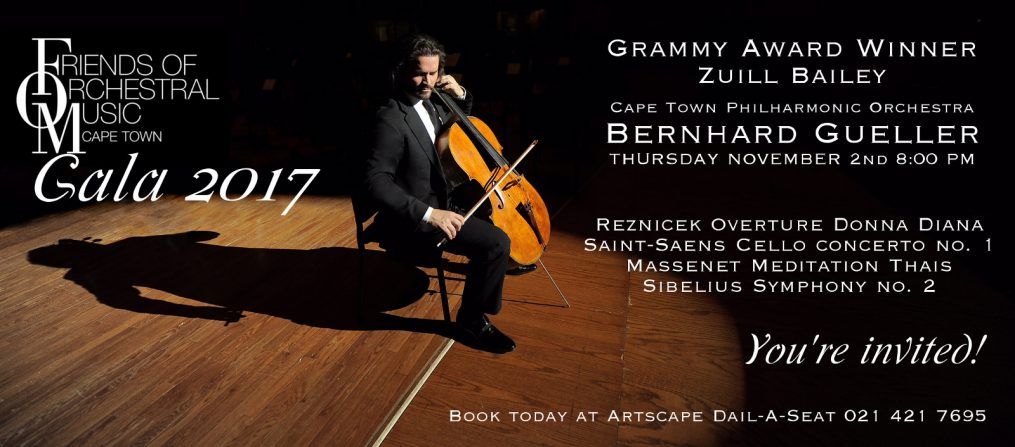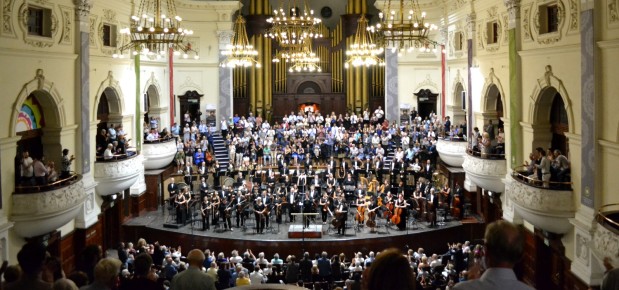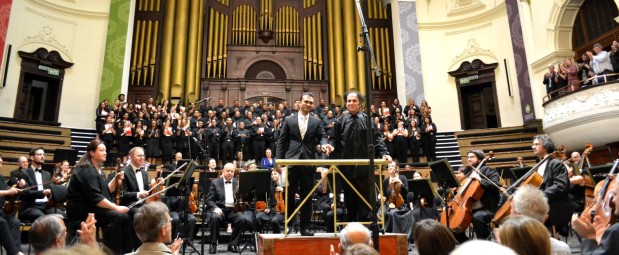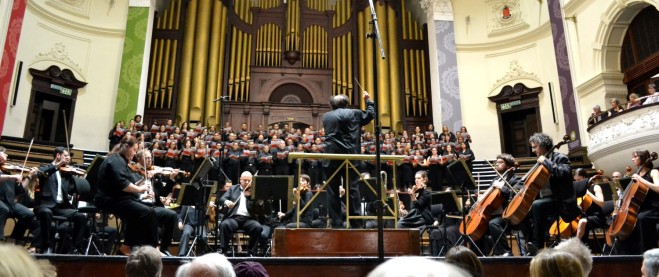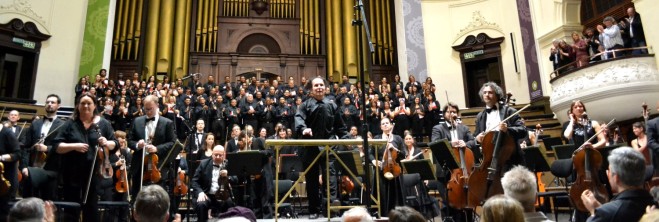Reviewed by Andy Wilding
Conductor: Daniel Boico
Soloist: Michael Thornton, horn
Cape Town Philharmonic Orchestra, City Hall Thursday 1 December 2016
Program: Bartók The Miraculous Mandarin Suite op. 19 – Strauss Horn Concerto no. 1 in E flat op.11 – Holst The Planets op, 32
The finale to the CTPO Spring Symphony Season was a sold out event featuring an action-packed program creating an atmosphere of high energy and excitement. There really is nothing like being in the audience on a night like this – you can book now for the Symphonic Picnic Concert, Green Point Track on Dec 18. Details of the CTPO Festive Season Concerts at the bottom of this page.
Great solos make exciting performances. Bartók’s primal, alien portrayal of a zombie who just wanted to be loved, offered mesmerizing moments to Daniel Prozesky clarinet, Beatrix du Toit bass clarinet, Sergei Burdukov oboe, and David Langford trombone, who mesmerised obligingly. The augmented percussion section was tremendous and synchronous with the miraculous CTPO.
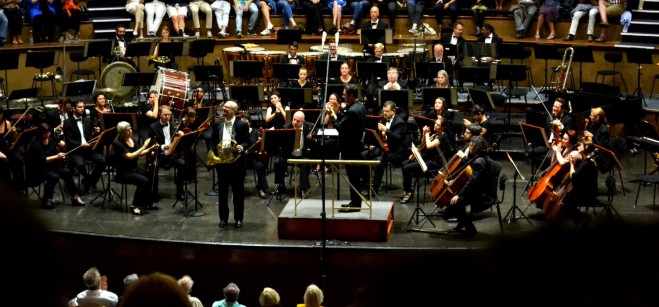
Michael Thornton’s Strauss Horn Concerto no.1 with Daniel Boico and the CTPO
Michael Thornton’s Siegfriedesqu opening of the Strauss concerto drew murmurs of satisfaction form the audience. We usually hear only glimpses of this heroic instrument shining out from behind the violins for a phrase or two. It was a pleasure indeed to have a concerto dedicated to the lovely mellow-toned horn. Thornton has clearly mastered the barely visible technique of an instrument that uses only 3 valves to produce every note. He demonstrated astonishing accuracy, culminating in semiquaver triplets at an impressively brisk allegro, third movement. His phrasing was dynamically expressive and he always found a good balance with Boico and the CTPO, always audible, never overbearing. I hope to hear Thornton’s Strauss 2 in the near future.

Daniel Boico with the Cape Town Philharmonic Orchestra Spring Season finale: Holst Planets
After the interval, the atmosphere of excitement returned with the audience as they took their seats for the final act of the Spring Season – Holst’s Planets. Mars burst into synchronous staccato from every string player in a truly amazing performance of rhythmic mastery, brooding suspense, and cataclysmic explosions. In the hypnotic pentameter of 5/4, Boico brilliantly welded together overlapping parts with clear and concise gestures, seeming to play the entire orchestra. Jupiter’s arrival on billowing clouds of strings heralded another complex Rubicon of tempo changes and polyrhythms, nimbly navigated by helmsman Boico and a responsive CTPO. Exceptional performances by the percussion section, two completely synchronous timpanists finishing each other sentences (Christoph Muller and Stephan Galvin) and the immaculate accurate Frank Mallows on the Glockenspiel.
There are four awards for #ShowStealer in the category “Starry Eyed Impressions of Venus”: Caroline Prozesky horn, Susanne Martens violin, Sergei Burdukov oboe and Kristiyan Chernev cello. Aphrodite absolutely.
“The Industrial Sound And Magic” award goes to Marek Pinsky’s invisible angel choir from the realm of Neptune, which had every audience member searching the stage for singers hiding among the violas, guessing at off-stage sopranos, or preferring not to ask in case the voices were inside their heads.
Dont miss more CTPO magic on Dec 9, Dec 18, Dec 31, Jan 7, Jan 14, and Jan 22!!
CLICK HERE FOR DETAILS http://www.cpo.org.za/calendar/

Michael Thornton and Daniel Boico at the reception after the Cape Town Philharmonic Orchestra Spring Season finale
